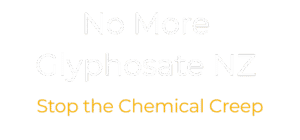What if your daily breakfast wasn’t as safe as it seemed?
We’re putting some of New Zealand’s most common cereals to the test—to find out if glyphosate is showing up where it shouldn’t.
We started with honey. That test is now complete, and the results can be seen here. (Spoiler: not every jar came back clean.)
Update 14 July 2025: We reached our goal and have sent seven varieties to the lab for testing. We hope to get the results in about 14 days – by the end of the month.
Why Cereal?
Breakfast cereals are a staple in many Kiwi households. They’re quick, convenient, and marketed as healthy—especially to children. But some grains, like wheat and oats, are commonly treated with glyphosate as a pre-harvest desiccant. That means the chemical is sprayed shortly before harvest to dry the crop and speed up processing.
The problem? This can leave residues behind—in the very food we start our day with.
We believe consumers have a right to know what’s in their cereal bowls. That’s why we’ve launched our second round of independent product testing.
What We’re Testing
We’re collecting popular New Zealand brands of:
- Wheat biscuits
- Rolled oats
- Muesli
- Toasted cereals
- Multigrain blends
…and other pantry staples your family might be eating every morning.
All samples are being sent to an accredited third-party laboratory for glyphosate residue testing.
Why It Matters
There is currently no mandatory testing for glyphosate residues in breakfast cereals in New Zealand. And with MPI’s proposal to increase allowable glyphosate levels in some crops, the need for independent data has never been more urgent.
These test results will help fill the information gap—so consumers, schools, and communities can make informed choices.
When Will Results Be Released?
We’ll be publishing the full results—sample by sample—once testing is complete and producers have been given the opportunity to respond. Subscribe to our newsletter to be notified the moment results go live.
Help Fund the Next Round of Testing
Every test costs money. We’re grassroots, community-funded, and committed to transparency. If you’d like to support our work, consider making a small donation. Together, we can hold the system accountable.
Click the donate button to use a credit card.
We’re not a big organisation with deep pockets. We don’t have a fancy office or a team of interns — just a few concerned Kiwis volunteering our time to protect what matters.
So far, this campaign has been entirely self-funded. But testing cereal isn’t cheap—each sample costs between $345 and $405. I know, right? But that’s the price of accredited lab testing in New Zealand. No shortcuts. No industry influence. Just facts.
Every dollar goes directly toward uncovering the truth and sharing it publicly. If you can help, we’d be grateful.
We all deserve to know what’s in our food. This is a great first step.


